Publications
Articles, publications, books, tools and multimedia features from the U.S. Institute of Peace provide the latest news, analysis, research findings, practitioner guides and reports, all related to the conflict zones and issues that are at the center of the Institute’s work to prevent and reduce violent conflict.
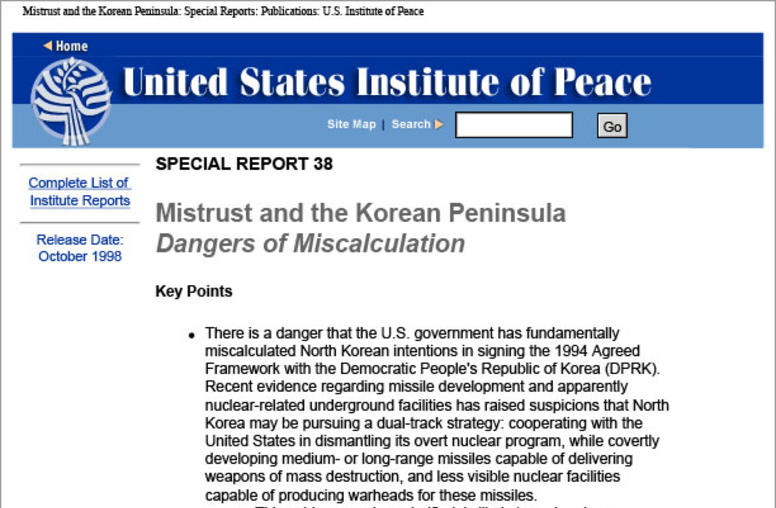
Mistrust and the Korean Peninsula: Dangers of Miscalculation
An unwillingness to challenge North Korea now with a more concerted diplomatic and deterrence policy, lest it precipitate a repeat of the 1994 crisis, risks being confronted later by a qualitatively different North Korean military threat. There is a significant danger of miscalculation: while previous North Korean induced crises have strengthened Pyongyang's negotiating leverage in general and perhaps the Korean People's Army's strong hold on power in particular, there is a serious risk that ...
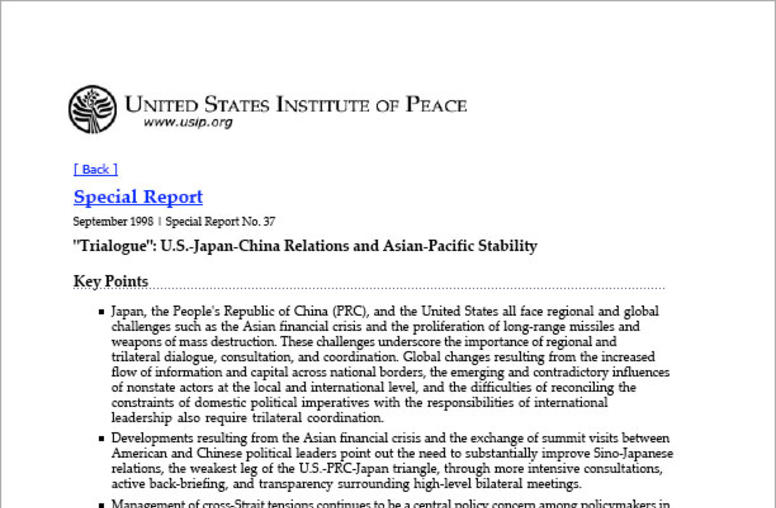
"Trialogue": U.S.-Japan-China Relations and Asian-Pacific Stability
The exchange of summits between the leaders of the People's Republic of China and the United States, the Asian financial crisis, and the decision by India and Pakistan to engage in nuclear testing have redirected the security agenda of the Asia-Pacific region. Such developments underscore the ongoing difficulties inherent in the transition from traditional approaches to security defined by the Cold War to a post-Cold War structure of international relations in the Asia-Pacific.
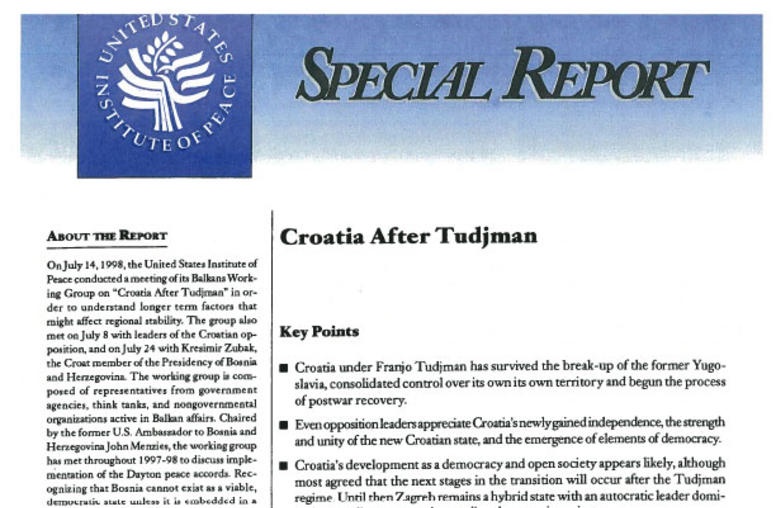
Croatia After Tudjman
Recognizing that Bosnia cannot exist as a viable, democratic state unless it is embedded in a region that is itself stable and democratic, the Institute has begun a Bosnia in the Balkans Initiative to explore the prospects for regional political and economic development. The Balkans Working Group on "Croatia After Tudjman" met in order to understand longer term factors that might affect regional stability. The recent meeting on Croatia is one component of this work, which has included separ...
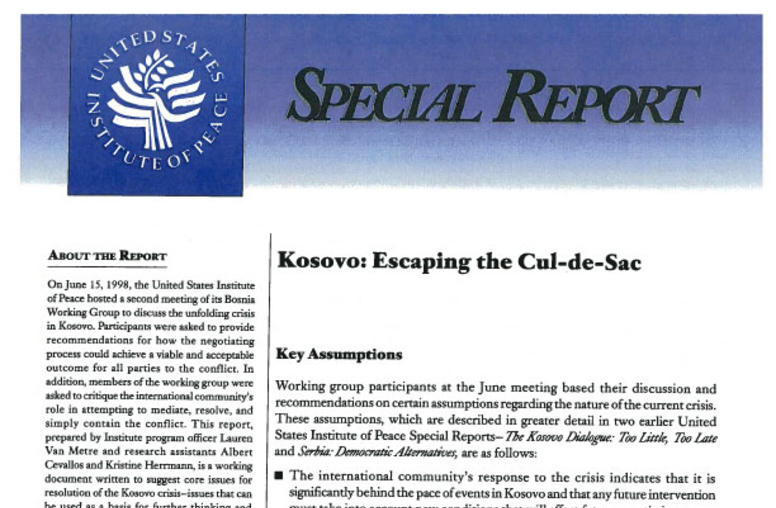
Kosovo: Escaping the Cul-de-Sac
The United States Institute of Peace hosted a second meeting of its Bosnia Working Group to discuss the unfolding crisis in Kosovo. Participants were asked to provide recommendations for how the negotiating process could achieve a viable and acceptable outcome for all parties to the conflict. In addition, members of the working group were asked to critique the international community's role in attempting to mediate, resolve, and simply contain the conflict.
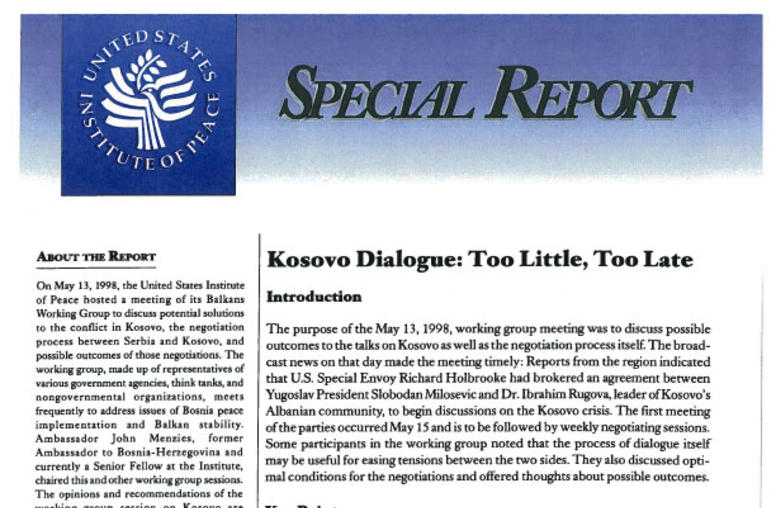
Kosovo Dialogue: Too Little, Too Late
The United States Institute of Peace hosted a meeting of its Balkans Working Group to discuss potential solutions to the conflict in Kosovo, the negotiation process between Serbia and Kosovo, and possible outcomes of those negotiations.
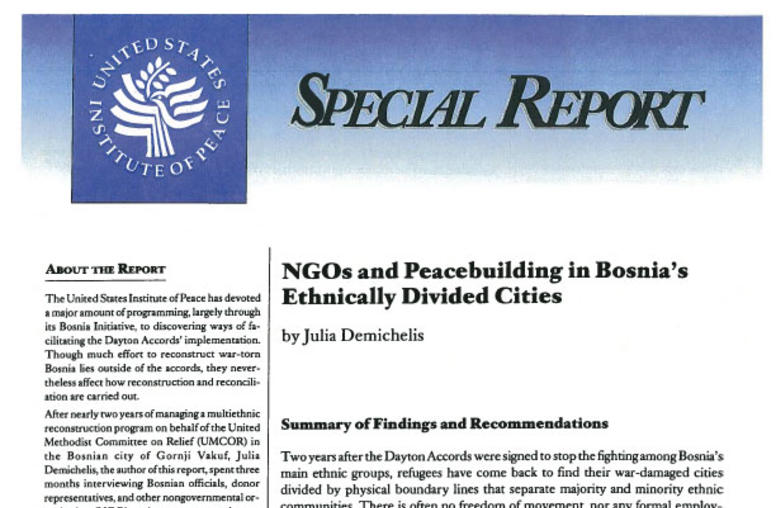
NGOs and Peacebuilding in Bosnia's Ethnically Divided Cities
This report begins with an overview of the political boundaries in many of Bosnia's municipalities that have prevented postconflict reconstruction and reconciliation. The next section describes effective and ineffective strategies among aid donors and humanitarian-relief NGOs operating in these locales, followed by a case study of successful grassroots programs in the city of Gornji Vakuf. The report concludes with recommendations for NGOs and donor organizations.
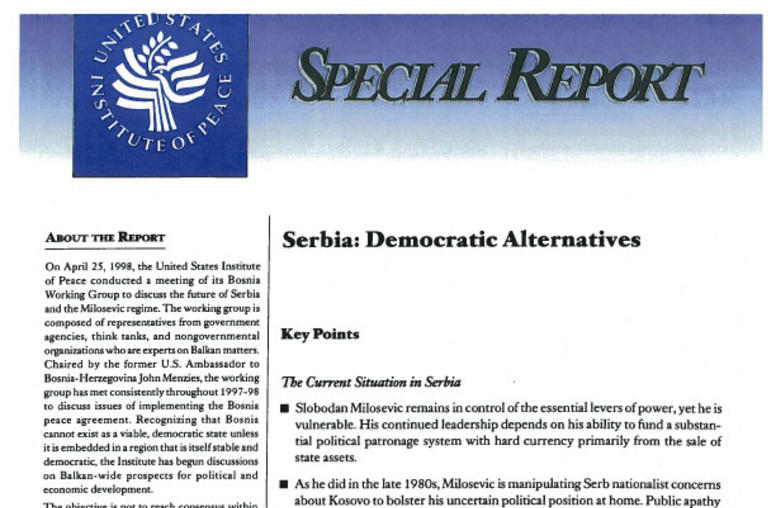
Serbia: Democratic Alternatives
On April 25, 1998, the United States Institute of Peace conducted a meeting of its Bosnia Working Group to discuss the future of Serbia and the Milosevic regime. The Institute's objective is not to reach consensus within the group, but to explore issues and options.
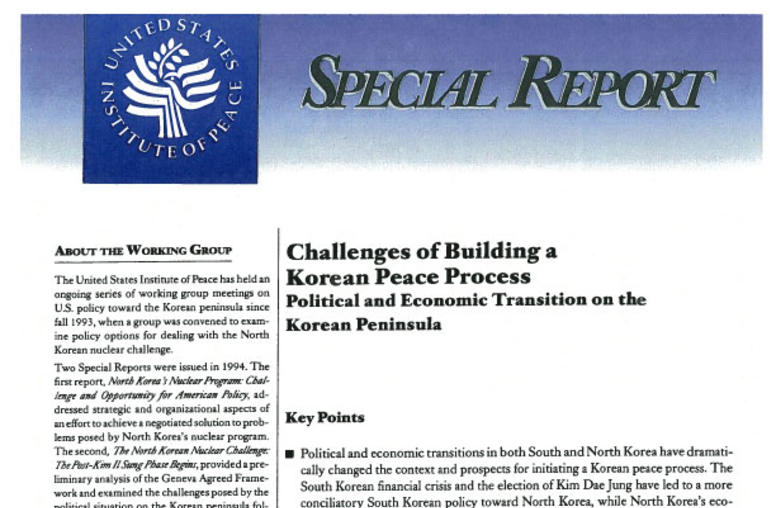
Challenges of Building a Korean Peace Process: Political and Economic Transition on the Korean Peninsula
This Special Report, authored by Program Officer Scott Snyder, is based on meetings of the working group that focused on political, economic, and security developments in North and South Korea.
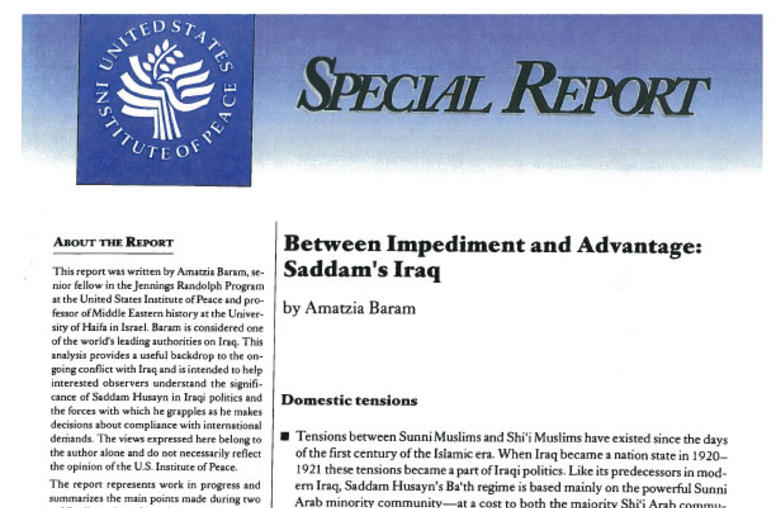
Between Impediment and Advantage: Saddam's Iraq
The report represents work in progress and summarizes the main points made during two public discussions about the nature of domestic politics in Iraq under Saddam. This analysis provides a useful backdrop to the ongoing conflict with Iraq and is intended to help interested observers understand the significance of Saddam Hussain in Iraqi politics and the forces with which he grapples as he makes decisions about compliance with international demands.
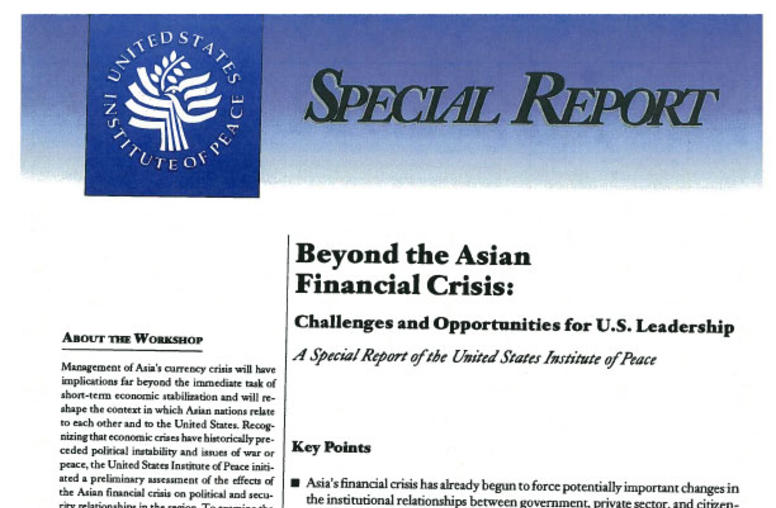
Beyond The Asian Financial Crisis: Challenges and Opportunities for U.S. Leadership
Following two decades of rapid growth, social change, and industrialization, the countries of the East Asian region are experiencing their first regionwide economic crisis. The immediate economic causes of Asia's financial crisis--especially unsustainable short-term foreign debt incurred by the private sector and exposed by the sudden devaluation of overvalued local currencies--have been identified. The challenges for U.S. leadership in response to the region's current financial crisis are to...